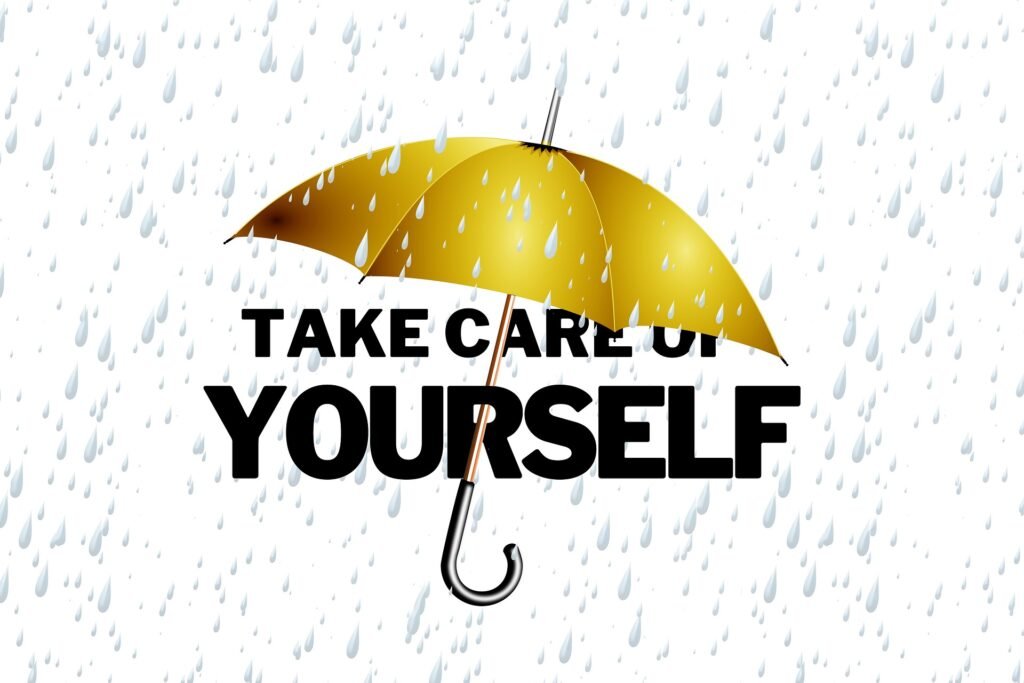In this competitive world, most people neglect self-care in order to stay ahead. But, maintaining a healthy and balanced life is one of the most important aspects. Whether you’re juggling work, family or personal aspirations, a solid self-care routine can make all the difference. In this blog, we’ll explore self-care essentials that are easy to incorporate into your daily life and helping you prioritize your well-being without feeling overwhelmed.
Why Self-Care Matters
Self-care is not only to favor yourself, more than it’s about taking deliberate actions to nurture your mental and physical health. Studies show that consistent self-care routines you can:
- Reduce stress and anxiety
- Boost productivity
- Improve physical health
- Enhance emotional resilience
Making time for yourself is not a selfish act; it’s an essential practice for well-being. You’re investing in your overall well-being so you can show up as your best self for others.
Morning Rituals: Starting Your Day Right
A good start to your day definitely affects everything else. Incorporating small yet impactful habits into your morning routine can help you start on a positive note. Here are a few ideas:
1. Hydrate First Thing
After hours of sleep, your body craves hydration. Start your morning with a glass of water—bonus points for adding a slice of lemon for a refreshing boost of vitamin C.
2. Mindful Movement
Whether it’s a 10-minute yoga session, a brisk walk or simple stretches, morning movement awakens your body and mind. It’s an excellent way to increase your mood and physical capability.
3. Set Intentions
Take a moment to reflect on your priorities for the day. Journaling or mentally listing three things you’re grateful for can help cultivate a positive mindset.
4. Healthy Breakfast
Try to make breakfast with nutritious food which is rich in protein, fiber and healthy fats that will charge you. Think avocado toast, smoothie bowls or oatmeal topped with fruits and nuts.
Workday Wellness: Staying Balanced During Busy Hours
The hustle of work can drain your energy, but integrating self-care into your day helps maintain focus and reduce stress.
1. Take Regular Breaks
Try the Pomodoro method: work with full focus for 25 minutes, then take a 5-minute break. Use this time to stretch, go for a short walk or practice deep breathing.
2. Stay Hydrated
Keep a water bottle within reach and small sip on it consistently during the day. Proper hydration supports cognitive function and keeps fatigue at bay.
3. Mindful Eating
Avoid eating lunch at your desk. Take time to savor your meals and choose nutrient-rich options to keep your energy levels stable.
4. Digital Detox Moments
To give your eyes and mind a chance to relax, take regular breaks from screens. Use this time to connect with a colleague or enjoy a moment of quiet.
Evening Wind-Down: Preparing for Rest
As your day winds down, shifting gears to relaxation mode is crucial for quality sleep and overall recovery. Here are some evening self-care essentials:
1. Unplug from Technology
Reduce screen usage at least an hour before bedtime, as the blue light from devices can interfere with your sleep patterns.
2. Pamper Your Skin
Develop a skincare routine that suits your needs. Cleansing, moisturizing and using treatments like serums or masks can make your skin feel refreshed and cared for.
3. Reflect and Journal
Spend 5-10 minutes journaling about your day. Take time to recognize your successes and pinpoint areas that could be enhanced. This practice helps declutter your mind and promotes self-awareness.
4. Create a Sleep Sanctuary
Ensure your bedroom is a relaxing environment. Enhance your sleep quality by choosing comfortable bedding, keeping the room cool, and using soothing scents like lavender.
Weekly and Monthly Self-Care Boosters
While daily routines are crucial, dedicating time for deeper self-care activities on a weekly or monthly basis can further enhance your well-being.
1. Exercise Consistently
Commit to minimum 150 minutes of moderate physical exercise per week. This could be anything from jogging and dancing to yoga or strength training.
2. Schedule “Me Time”
Set aside time for activities you love—reading, painting, gardening or exploring new hobbies. Doing what you enjoy recharges your mental and emotional batteries.
3. Social Connection
Spend quality time with friends and family. Build strong relationships is a vital component of self-care.
4. Declutter and Organize
A clutter-free space leads to a clutter-free mind. Dedicate time to tidy up your living or work area to create an environment that promotes calmness and productivity.
Addressing Barriers to Self-Care
Despite its importance, many struggle with self-care due to time constraints, guilt or lack of knowledge. For tackle these obstacles, here are a few strategies that will help you.
1. Start Small
You don’t need to overhaul your life overnight. Begin with one or two small changes, like drinking more water or journaling for five minutes a day.
2. Set Boundaries
Set boundaries by declining activities or commitments that exhaust your energy. Protecting your time is essential for self-care.
3. Seek Support
Discuss your self-care objectives with a trusted friend or family member to help ensure you stay on track.
4. Be Kind to Yourself
Remember, self-care isn’t about perfection. It’s about progress. Enjoy small wins and don’t be too hard on yourself when you falter.
Conclusion: Embrace Self-Care as a Lifestyle
Self-care is not a one-size-fits-all solution. It’s an intimate journey that adapts to your changing needs and situations. By making small, consistent efforts, you can cultivate a routine that supports your mind, body and soul.
Start with the tips shared here and adapt them to fit your life. With time, self-care will become second nature, empowering you to live a happier, healthier and more fulfilling life.

